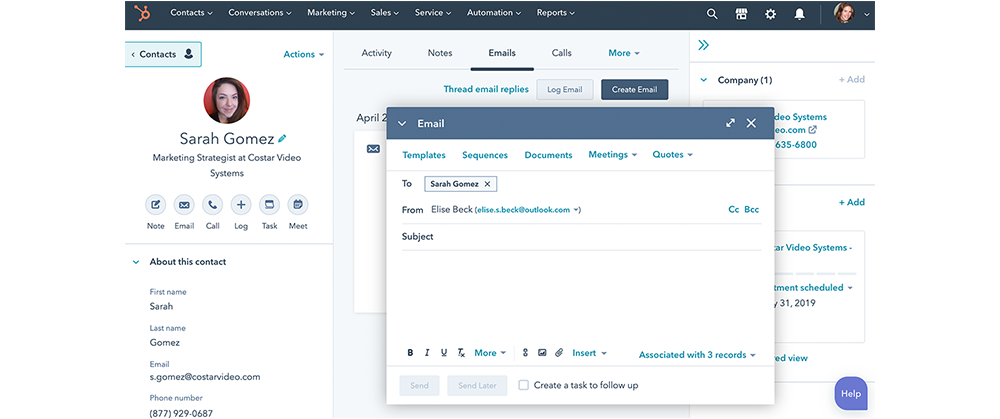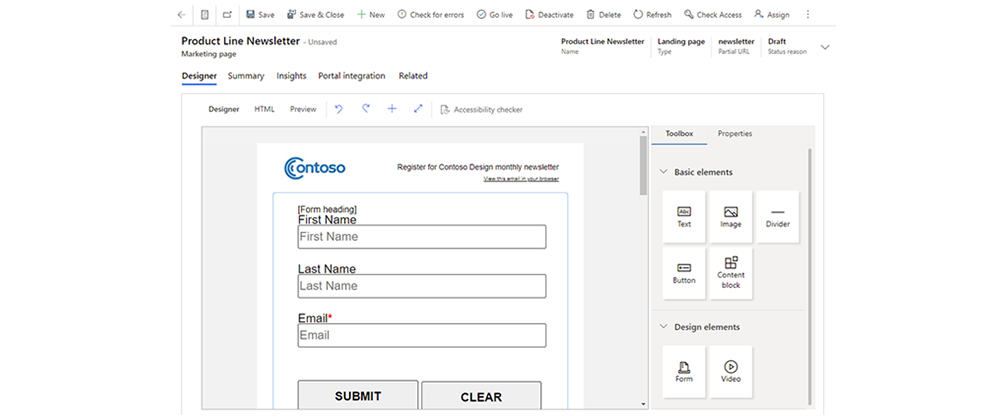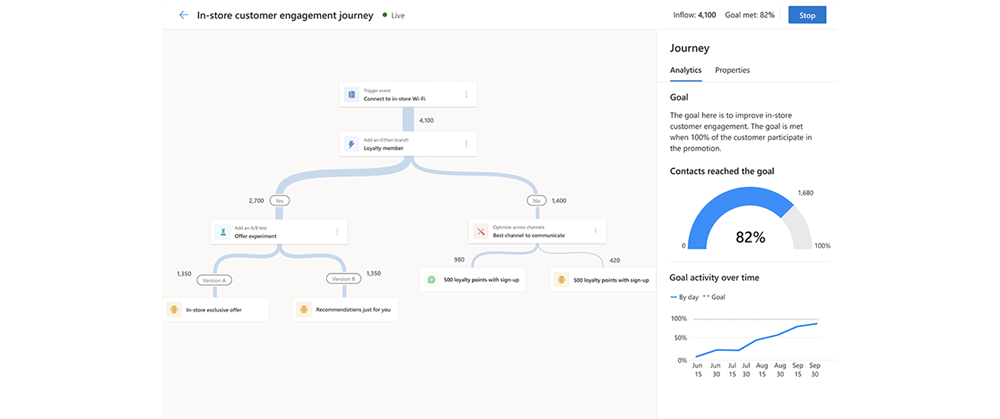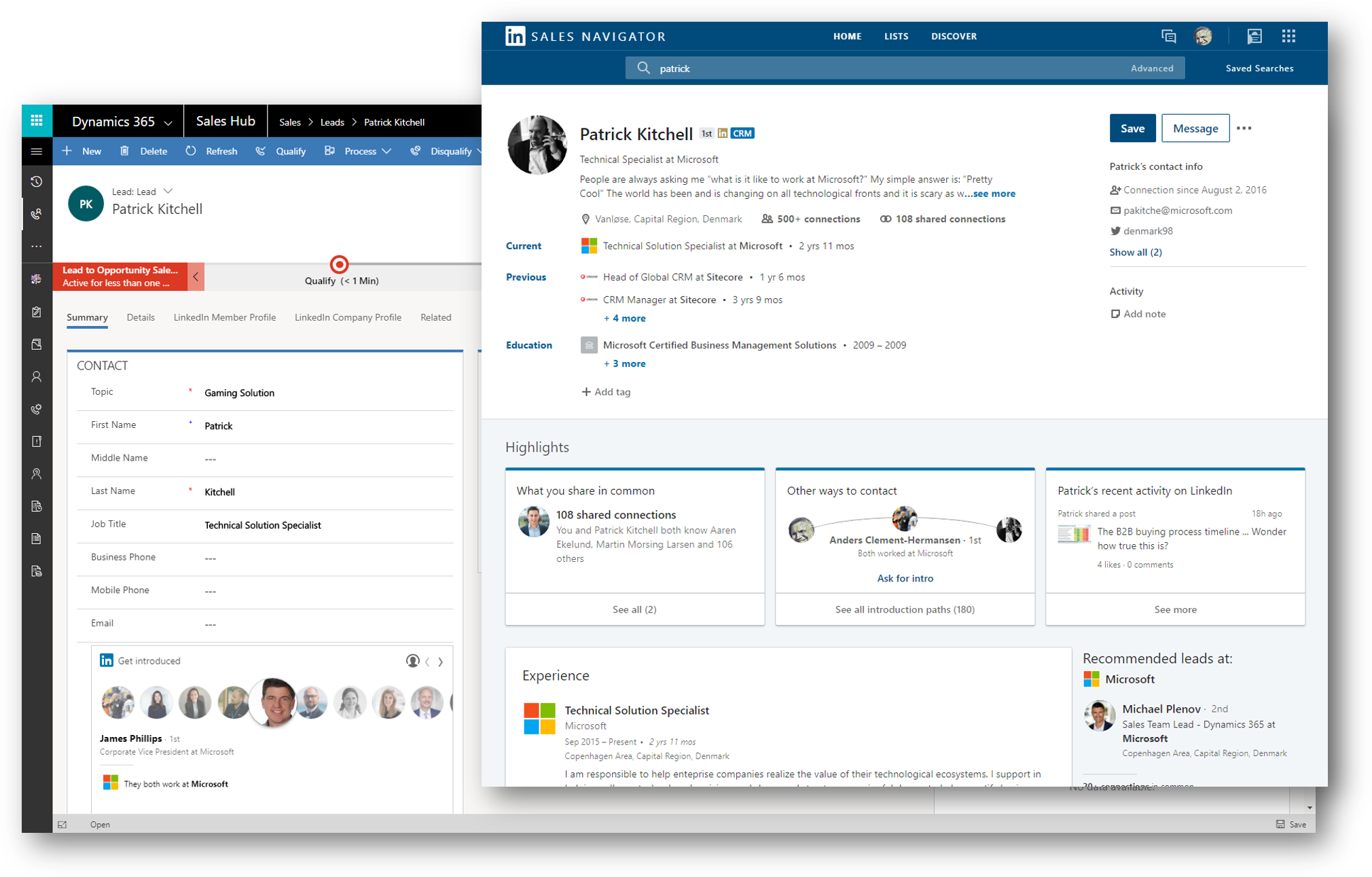As Microsoft advances with marketing automation, we compare Dynamics 365 Marketing vs HubSpot and which is right for your organisation.
Many marketing automation platforms now look to offer CRM functionality to counter the weakness of the integrations and to keep users within a single platform. Microsoft has invested heavily in its marketing automation solution, to the point that it can now conceivably compete with leading automation platforms. So if an organisation were to assess Dynamics 365 Customer Insights vs HubSpot for its marketing requirements now, how would they decide the best route?
Context
For many years, if an organisation wanted a CRM system it would turn to a solution, such as Microsoft Dynamics. If it needed marketing automation it would look to another solution, such as HubSpot. While this worked well for each platform in isolation, it was rarely a perfect approach when it came to getting the two systems to work together.
Even with the tightest of integrations, there were always some data gaps between CRM systems and marketing automation platforms that resulted in inefficient processes or siloed intelligence. Realising this, developers have forged to bring sales and marketing technology closer together.
Dynamics 365 vs HubSpot: Features
HubSpot is a comprehensive marketing automation platform, offering all the modern automation features an organisation needs: email marketing, forms, landing pages, live chat, lead scoring, and social media marketing tools.
In more recent years, the platform has also developed to try and offer CRM functionality (in response to other automation providers doing similarly and Microsoft coming the other way).

While HubSpot has made headway in this regard, it remains contact-focused. In this regard, it doesn’t support some of the wider automation benefits of a mature CRM system (such as invoicing and billing).
Dynamics 365 Customer Insights has now developed to a point where it offers much of the same functionality – albeit slightly less glossy. For example, drag-and-drop builders within Dynamics 365 make creating emails and landing pages simple, but don’t yet offer some of the pre-designed elements that some marketing automation solutions offer.
However, with Dynamics 365 Microsoft has taken a slightly different track in developing a marketing automation solution. Rather than the more glossy appearance, it's focused on enhancing control of user journeys – including the ability to shape this in real-time. This functionality has excited many marketers (notably those who target in-market audiences) as they’re able to direct prospects along more personalised journeys. This in turn can help increase conversions through more relevant content and touchpoints.
Dynamics 365 Customer Insights pairs intuitively with Dynamics 365 Sales - a market-leading sales CRM solution. This combination means that data on every marketing interaction is available to sales teams - and vice versa. Overall, this means overall an organisation can have smarter conversations with its prospects and customers.

Dynamics 365 vs HubSpot: Integration
There’s no hiding that integration remains a point of contention for HubSpot.
Linking a mature CRM system to HubSpot can be a nightmare of data and field alignments – a process that can conceivably take weeks. This carries a not-inconsiderate time and financial cost (partly explaining why HubSpot has been keen to develop CRM functionality to keep users within its system).
In contrast, if an organisation is already using Dynamics 365 Sales then it can integrate Dynamics 365 Customer Insights in just a couple of hours. Data can then also flow across wider Dynamics 365 module integrations.
And the integration potential of Dynamics 365 goes far wider: applications including Microsoft 365, Teams, LinkedIn and Power Platforms all work with and can enhance the platform, delivering new levels of data insight.

For an unconventional approach, Dynamics 365 Customer Insights can even be successfully integrated with non-Microsoft CRM platforms (such as Salesforce). But for most organisations, the benefits are to be found with an all-in Dynamics 365 solution.
Dynamics 365 vs HubSpot: Cost
On the surface, cost is where Dynamics 365 falls down. The monthly cost per tenant of £1,131.20 (for up to 10,000 contacts) will be high for SME organisations.
In contrast, HubSpot offers marketing automation starting from £42 per month – although for a comparable level of contacts to that supported by Dynamics 365 , organisations will be looking at costs of around £1,000 per month.
What isn’t covered is the required platform onboarding and training costs of HubSpot. This will typically cost around £2,500 for its Professional level onboarding and £4,900 for the Enterprise level.
While Dynamics 365 Customer Insights will require integration and training, from our experience this can typically be covered in a single day at a consultant’s rate (sub £1,000).
It’s worth noting that adding more contacts raises the cost for both platforms, so keeping an eye on this number is advisable.
Hubspot vs Microsoft Dynamics 365: Conclusion
When comparing Dynamics 365 Customer Insights vs HubSpot, it's easy to see Microsoft as the rising challenger in marketing automation.
As noted by Gartner in its 2021 assessment of marketing automation platforms, the main reason that Microsoft isn’t further into the market is simply that “awareness of the Dynamics 365 solution remains low”. Given how much the application has developed and the number of organisations already using Dynamics 365 Sales, Microsoft will likely find a very healthy space for Dynamics 365 Customer Insights once awareness is higher.
This factor really sits at the route of any final decision. An organisation already ingrained with Dynamics 365 and Microsoft 365 will benefit most from adding Dynamics 365 Customer Insights to that ecosphere – arguably more so than HubSpot or other marketing automation solution. For this reason, it’s a must to book a demo if your organisation hasn’t reviewed the developments in Dynamics 365 recently. It may not be the cheapest platform on the market, but that’s reflected in functionality and what it can achieve alongside a wider Dynamics 365 setup.
Organisations that aren’t using Dynamics 365 as their CRM/ERP solution should still explore what Dynamics 365 Customer Insights has to offer but may determine that a solution such as HubSpot fits their setup better.
View more about our Dynamics 365 Customer Insights services:




